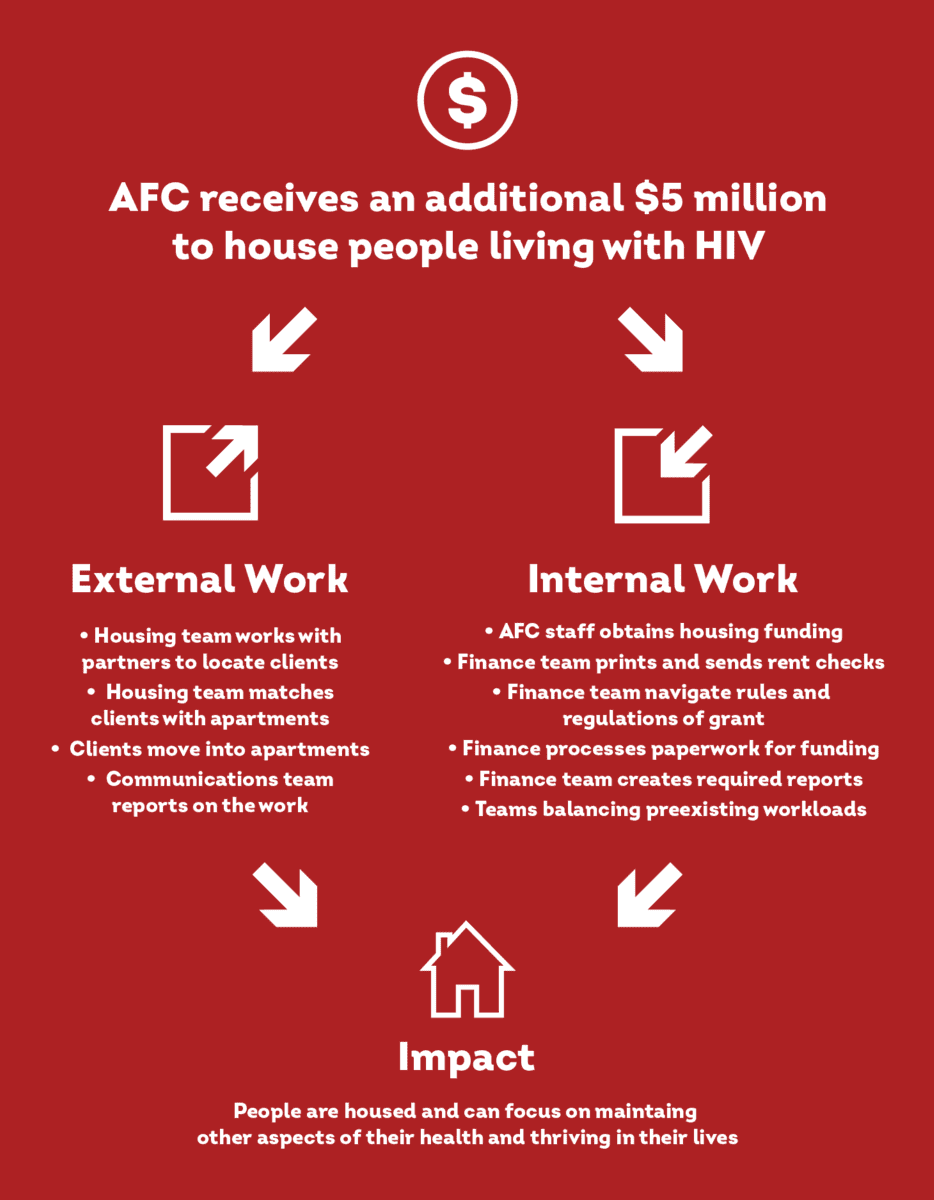 Cheryl Davies-Booth was one of nearly 40.
Cheryl Davies-Booth was one of nearly 40.
On April 10, she traveled with the AIDS Foundation of Chicago (AFC) and a band of advocates to Springfield for Lobby Days.
Most of the activists aboard the southbound bus were eager to encourage funding for lifesaving HIV services and to support other bills that were gaining steam in the General Assembly, but Cheryl, a case manager with the South Side Health Center and AFC’s Harm Reduction in Prison Coalition, had her sights on a different goal.
Illinois House Representative Greg Harris (D-Chicago) was pushing House Resolution 57 (amendment one), which called for a management audit of Wexford Health Sources, a private health care company that provides Illinois’s prison population with comprehensive medical and mental health services.
“Any financial auditor can come in and see if the terms of the contract are being honored,” Rep. Harris said, “but the heart of this matter asks, are we getting adequate health care according to national standards, especially for people with high needs, such as those living with HIV, hepatitis C, and the elderly?”
According to the Harm Reduction in Prison Coalition, HIV rates are at least three times higher among prison populations than in the general public. Given the lack of male and female condoms in jail and a health care system in question for incarcerated people, it’s difficult to prevent the spread of HIV.
Such evidence shows that there’s an urgent need to examine Wexford’s practices.
“When I joined the Harm Reduction in Prison Coalition [an advocacy group that aims to reduce the transmission of HIV among incarcerated populations] and began to learn more about the health care system in Illinois’s prisons,” Cheryl said, “I was shocked about the lack of mundane, everyday clinical supplies, like gloves, alcohol, sutures, suture tape. And also the antiquated equipment. There’s equipment that isn’t working. There was a period of time when there wasn’t a working blood pressure machine or a working EKG machine in one prison. This is unacceptable.”
Inadequate supplies and lack of regulation provide another series of hurdles to a prison health care system that is already filled with barriers.
For example, the Illinois Department of Corrections (IDOC) has long charged inmates a five dollar copay every time they visit a doctor. Once incarcerated, people are supposed to receive a job, earning roughly $15 per month, according to Cheryl, but that often doesn’t happen. With no income, inmates often rely on families or other means to afford copays, or else they don’t receive the medical care they need.
These are some of the factors that sparked significant legal ramifications against the state: According to the resolution, IDOC identified nearly 250 pending lawsuits from inmates and family members, all centering on health care.
To change the system, Rep. Harris is advocating that IDCO seek accreditation from the National Commission on Correctional Health Care (NCCHC). The organization would certify that IDOC health facilities meet the 2008 Standards for Health Services.
According to its website, “The Standards address nine general areas: health care services and support, inmate care and treatment, special needs and services, governance and administration, personnel and training, safety, health records, health promotion and medical-legal issues.”
“I came to Lobby Days,” Cheryl said, “because I wanted to support Rep. Harris’s proposed amendment. I wanted to let other House members know that he’s not asking to create a new commissioning body that will take five years to get off the ground. He’s asking that Wexford abide by the contract they signed, and that NCCHC performs random audits to make sure Wexford is doing what they need to do to care for peoples’ lives.”
Wexford has a ten-year contract with IDOC worth $1.36 billion, and it serves approximately 47,000 inmates at 27 correctional centers, according to the resolution.
Rep. Harris is urging IDOC to survey, audit, and accredit a select sample of facilities according to NCCHC standards over the next three years. Included in the accreditation process are onsite visits, interviews with both inmates and staff, and a thorough review of policies and practices.
Until Wexford is compliant with its original contract and national standards at all 27 facilities in the state, Cheryl’s voice will be heard. There’s a lot of money at stake, but like she and Rep. Harris agree, this isn’t about the bottom line. This is about livelihood—often overlooked livelihood.
This trip marked Cheryl’s sixth time participating in Lobby Days, and when the bus gets ready to head from Chicago to Springfield again, there’s no doubt that Cheryl will be on board.



